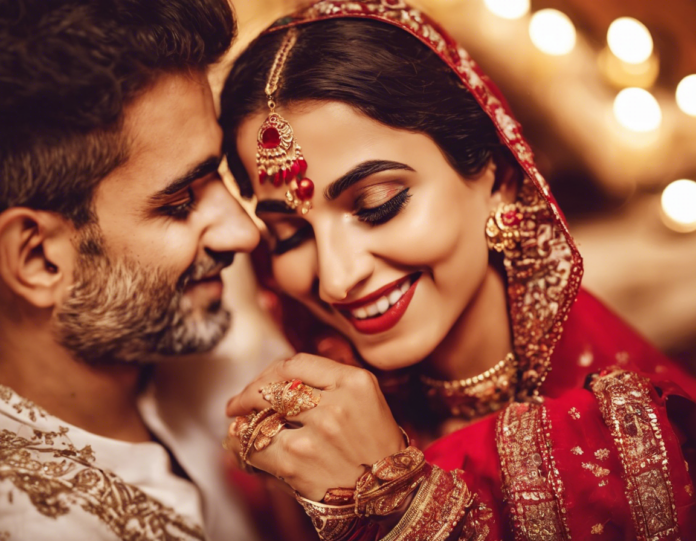Karwa Chauth is a traditional Hindu festival celebrated by married women in India, prominently in the northern region, with great fervor and excitement. The festival falls on the fourth day after the full moon, in the Hindu lunisolar calendar month of Kartik. Women observe a day-long fast from sunrise to moonrise for the longevity and prosperity of their husbands. The fast is considered to be a pious act that strengthens the marital bond and is believed to bring blessings and protection to the husband and the family.
History and Significance
Karwa Chauth has a rich historical and cultural significance that dates back centuries. The word “Karwa” means a clay pot used to store wheat grains, while “Chauth” refers to the fourth day. It is believed that this tradition originated as a way for women to pray for the safe return of their husbands who went off to war. Through the years, the festival has evolved to symbolize love, devotion, and sacrifice.
Rituals and Traditions
The rituals of Karwa Chauth are elaborate and hold special importance for married women. The day begins before sunrise with Sargi, a pre-dawn meal prepared by the mother-in-law. The fast starts after consuming Sargi, and the women refrain from eating or drinking all day. Throughout the day, they engage in prayers, apply mehndi (henna) on their hands, and dress up in traditional attire. In the evening, a puja (worship ceremony) is performed, usually in a gathering of women from the community. The fast is broken only after spotting the moon and performing the rituals.
Dress Code and Accessories
Women deck up in traditional Indian attire on Karwa Chauth, usually opting for bright and colorful sarees or suits. The color red holds special significance on this day as it symbolizes love, passion, and marriage. Married women often wear red sarees or dupattas and adorn themselves with jewelry, especially symbols of matrimony like mangalsutra (necklace) and bangles. Mehndi (henna) is applied on their hands as a symbol of auspiciousness and beauty.
Food and Cuisine
After the day-long fast, women break their fast by looking at the moon through a sieve and then at their husbands. This ritual is followed by partaking in a meal called Sargi, which consists of fruits, sweets, and other delicacies prepared by the mother-in-law. The feast that follows the fast usually includes dishes like puri, aloo sabzi, paneer dishes, and sweets like kheer, jalebi, and gajar ka halwa.
Modern Interpretations and Celebrations
In contemporary times, Karwa Chauth has transcended its traditional roots and transformed into a celebration of love and togetherness. Many urban women choose to fast for their husbands even if they are working professionals. The festival has also become a platform for social gatherings, where women come together to celebrate womanhood, share experiences, and partake in the rituals collectively. Social media platforms are abuzz with Karwa Chauth trends, with women showcasing their mehndi designs, outfits, and festive preparations.
Significance of Moonrise
The most-awaited moment of Karwa Chauth is when women break their fast after sighting the moonrise. The moon is symbolic of purity, beauty, and eternal love in Hindu mythology. It is believed that seeing the moon through a sieve and then looking at their husbands strengthens the marital bond and brings blessings from the divine. The moonrise on Karwa Chauth holds a special place in the hearts of married women as they pray for the well-being and longevity of their spouses.
Tips for Observing Karwa Chauth
- Stay Hydrated: Since the fast is observed from sunrise to moonrise, it is essential to stay hydrated by drinking water or coconut water before sunrise.
- Eat a Nutritious Sargi: The pre-dawn meal, Sargi, should include fruits, nuts, and foods that provide sustained energy throughout the day.
- Rest and Relax: Take breaks during the day to rest and conserve energy. Avoid strenuous activities and conserve your strength for the evening rituals.
- Dress Comfortably: Choose comfortable yet traditional attire for the day to make it easier to observe the fast and perform the rituals.
- Stay Positive: Karwa Chauth is a day filled with prayers, positivity, and love. Keep a positive mindset throughout the day to enhance the spiritual experience.
FAQs (Frequently Asked Questions)
- Can unmarried women observe Karwa Chauth?
-
Karwa Chauth is predominantly observed by married women. Unmarried women may choose to observe the fast for their future spouses or for blessings in their marital life.
-
What if the moon is not visible on Karwa Chauth night?
-
In case the moon is not visible due to clouds or other reasons, women can break their fast after performing the rituals and prayers, as per tradition.
-
Is it mandatory to wear only red attire on Karwa Chauth?
-
While red is considered auspicious on Karwa Chauth, women can opt for other traditional colors as well. The focus is on dressing traditionally and elegantly.
-
Can pregnant or breastfeeding women observe Karwa Chauth fast?
-
Pregnant or breastfeeding women are advised to consult their healthcare providers before observing a fast. They can choose to participate in the rituals and prayers without fasting.
-
Can I perform the Karwa Chauth rituals if my husband is traveling or not present?
- Women can perform the Karwa Chauth rituals even if their husbands are traveling or not present. The prayers and fast are considered beneficial for the well-being of the spouse.
Karwa Chauth is more than just a fasting ritual; it is a celebration of love, devotion, and the eternal bond between husband and wife. The festival brings families together, strengthens relationships, and spreads joy and happiness. With its deep-rooted traditions and modern interpretations, Karwa Chauth continues to hold a special place in the hearts of married women across India.


Recent comments